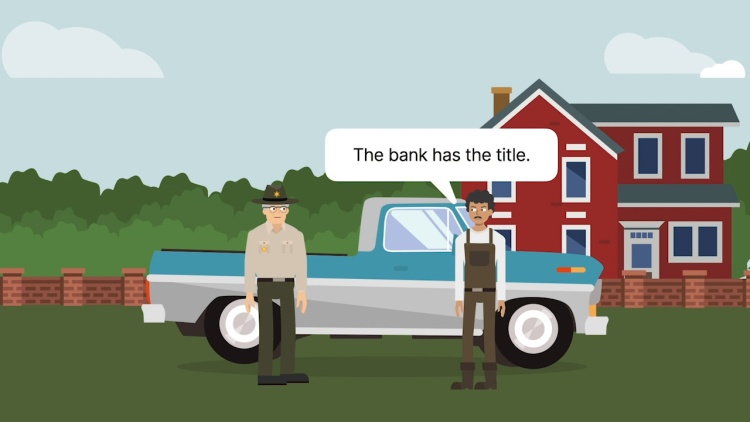Credit Bureau of Broken Bow, Inc. v. Moninger
Nebraska Supreme Court
284 N.W.2d 855 (1979)

- Written by Josh Lee, JD
Facts
The Credit Bureau of Broken Bow (the Bureau) (plaintiff) obtained a default judgment against John Moninger (defendant) on October 20, 1977. Moninger renewed a prior note with the Broken Bow State Bank (the Bank) on May 16, 1978. This note was to be secured by a 1975 Ford pickup, but no security agreement was entered into. The Bureau requested a writ of execution on its judgment, which was issued on June 27, 1978. The writ was delivered to the deputy sheriff, who checked the motor vehicle title records for any recorded liens on the pickup truck. No liens were found, and the deputy sheriff served Moninger with the writ on July 7, 1978. The deputy sheriff informed Moninger that he was executing on the pickup truck, grabbed the truck, and stated “I execute on the pickup for the County of Custer.” At this time, the deputy sheriff did not take possession of the vehicle. The Bank was informed of these events, and the Bank and Moninger executed a security agreement on the pickup truck to secure the May 1978 renewal note on July 10, 1978. The security interest was perfected that same day. The deputy sheriffs seized the pickup truck on July 13, 1978 and sold it at a sheriff’s sale. The sheriff filed a motion seeking a determination of where the proceeds should be distributed. The Bank asserted priority as a secured creditor, and the trial court awarded the proceeds to the Bank. The Bureau appealed to the Nebraska Supreme Court.
Rule of Law
Issue
Holding and Reasoning (Brodkey, J.)
What to do next…
Here's why 911,000 law students have relied on our case briefs:
- Written by law professors and practitioners, not other law students. 47,100 briefs, keyed to 997 casebooks. Top-notch customer support.
- The right amount of information, includes the facts, issues, rule of law, holding and reasoning, and any concurrences and dissents.
- Access in your classes, works on your mobile and tablet. Massive library of related video lessons and high quality multiple-choice questions.
- Easy to use, uniform format for every case brief. Written in plain English, not in legalese. Our briefs summarize and simplify; they don’t just repeat the court’s language.





